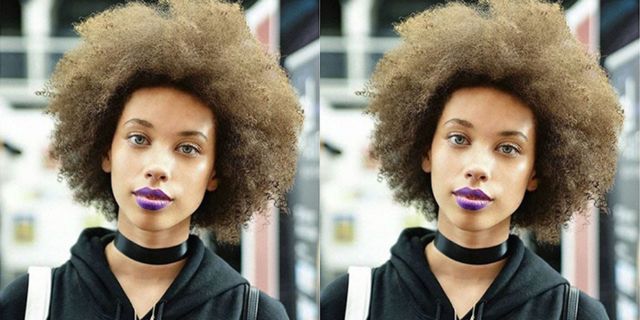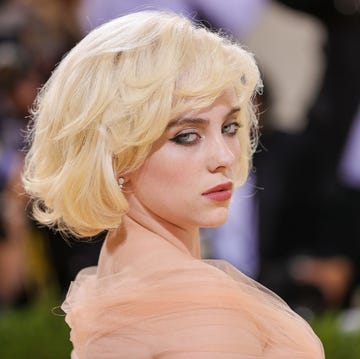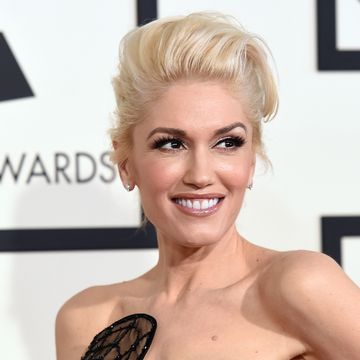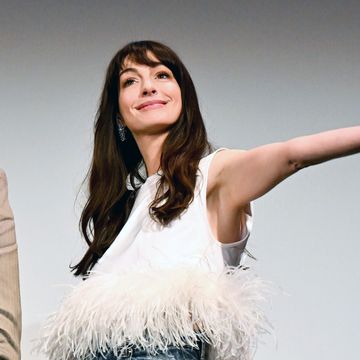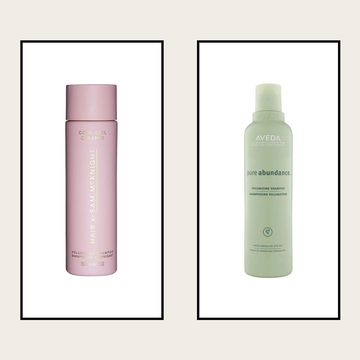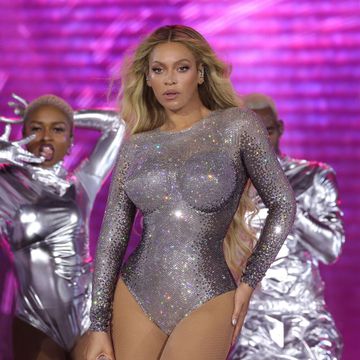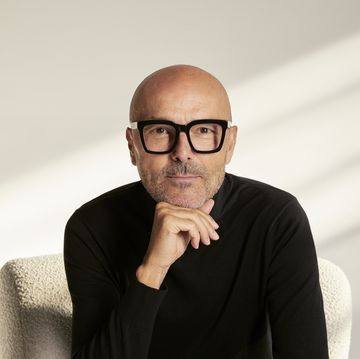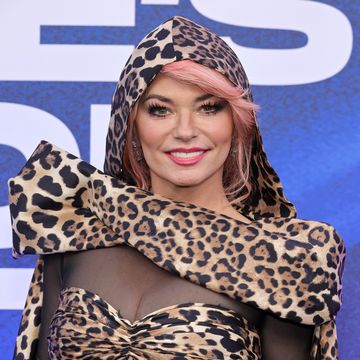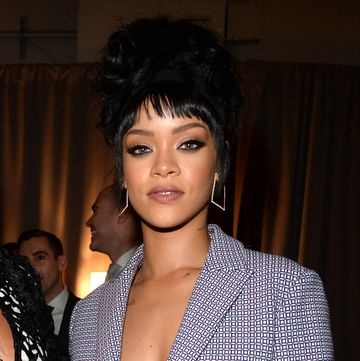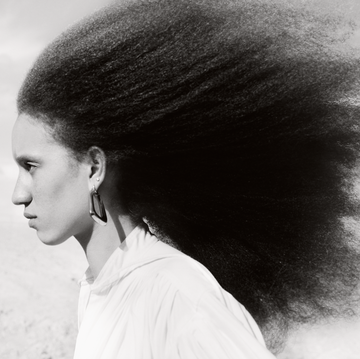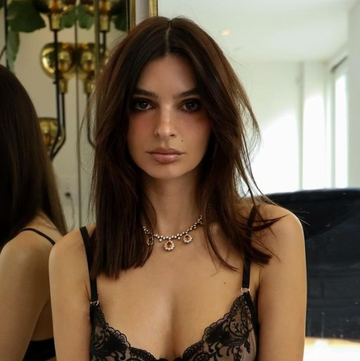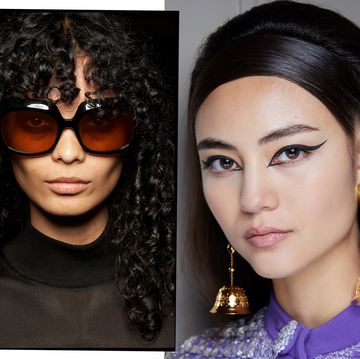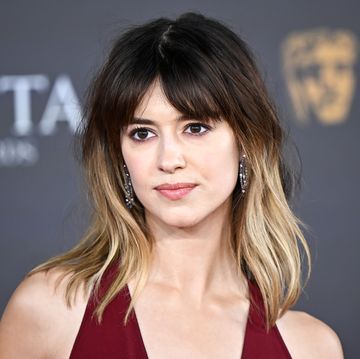The concept of models being treated as disposable elements of the fashion industry must have reached some sort of zenith.
With models having an increasingly loud voice on social media platforms and with industry whistle-blowers like James Scully publicly calling specific designers and casting directors out for bad treatment of models, one can only hope that it's the beginning of the end when it comes to model mistreatment.
The model Agnes Hedengård made headlines a couple of years ago after she posted a video of herself, explaining how she had been told she was too fat, despite having a BMI of 17.5.
Leomie Anderson wrote for us about her struggles with her beautiful dark skin in the industry.
When it comes to size and colour, the industry struggles to deviate from the tall, thin and 'European' ideal.
This ignorance also extends to hair.
Women with 'black hair' can struggle with other people's expectation of it. Weaves and treated hair can often be seen as more 'professional' and preferred by employers, which doesn't take into account the cost, the (dis)comfort, oh, and the fact it's none of their business.
In modeling, part of the 'problem' (alongside the industry's preference of whiteness) is that hairdressers struggle with handling the hair, and have been overheard suggesting that it isn't as versatile.
Though, with women speaking out about natural hair, it seems it might finally be getting its day in the sun. Slowly but surely, models with their beautiful afros and curls are gaining visibility in major shows and campaigns.
Pippa Christian is a 24-year-old Liverpudlian who's been modeling for the last five years. She has always had an amazing afro, with a brief foray into long braids, reminiscent of Dion in Clueless, and she uses her social media platforms to try and bring awareness to the issue of black hair (and other things) as well as showing off just how fabulous her own is.
Pippa brought our attention to the fact that casting calls with the caveat 'Hair type: all except afro' still get sent out today.
Pippa is tall, slim and ridiculously striking. It could easily baffle you to understand that her race might ever have hindered her chances at career success as a model.
It was about a year into her career, however, when she realised her hair and race were still seen as abnormal in the industry.
It was when she was featured on the mega-blog The Satorialist when she saw something was wrong:
'My friend showed me the picture online. It was flooded with comments on my appearance and people's bewilderment over my 'pale skin', 'light eyes', 'black features' and how something about it all must be 'fake'. I didn't realise just from looking the way I do people would prejudge and assume so much.'
And she's right, someone outright states in the comments, 'Because she is pretty obviously wearing contacts. Still looks amazing. Maybe even makes me like it better.'
She isn't wearing contacts by the way, not that it matters.
Much of her experience of racism or ignorance in the industry has happened like this; a slow dawning of understanding that whatever just happened wasn't right.
'I booked a job with a big brand once for their campaign and at the casting I was told: "your hair is the exact hair we're looking for! Perfect!"
'At the time I didn't think twice about this comment, but it wasn't until I was at the shoot and realised I was most definitely the token black girl, with black features (e.g an afro) that was to be used in the background of the whole shoot, simply ticking a diversity box,' she explains to ELLE.
Though things have already gotten better in the five years she's been at it, the prevalent feeling has always been that there is only ever space for one black girl, or one afro in any shoot or show:
'When I started I definitely felt like I was one of very few models that had my look; I would go to walk-ins at agencies and be told "you're not for our board right now" or "we already have a girl that looks like you..." - one agency actually scrolled through their website to show me the girl they deemed looked like me (who, of course, didn't - she had a different skin tone, hair texture, eye colour) and in doing so scrolled past the 20 plus blonde girls who genuinely did look pretty similar.
'It was then I realised the industry definitely had this underlying "we have one, we don't need another" view on black models.'
But it isn't just trying to get the jobs that's a tiring struggle - how Pippa's hair is treated once she's booked is also a constant labour.
Like Leomie walking a show with an ashen face due to inadequate foundation shades, Pippa has had her fair share of hair stylists not knowing what the hell to do with her hair.
The worst is always at Fashion Week when she has the 'most ignorant experiences from the teams around me. It's shocking to me to walk into a room with a professional, massive team of hair stylists for something as prominent as Fashion Week and have them all look at me like I am an alien from outer space.'
'Not-so-subtle looks and remarks like "what do we do?" whilst they glare at my afro as if having never seen one before in their whole hair styling career, to "thank God" once they realise they don't have to do anything to my hair,' Pippa continues.
'It's baffling. I have lost count of the times I have walked into a job (most times as the 'token afro') and felt alienated or like my hair is a burden to a so-called professional hair stylist who won't even have simple pieces of a hair kit like an afro comb or leave-in conditioner.
'It's often a catch 22 scenario, as I don't want to speak out too harshly on a hair stylist's craft whilst they are doing my hair as I would be seen as 'aggressive' or a 'diva' (as they brush out my afro with a hairbrush I would never use on my hair with the aim to get 'more defined curls'...), but as I sit there in my seat, seeing my hair look gradually worse than when I arrived, it does inevitably diminish my confidence on a shoot or show and alter my overall performance at doing my job, because I don't feel like I look my best.'
She tells us another story that stands out to her:
'Another time I was booked for two jobs in one day over Fashion Week, the first wanted my hair braided and a lot of hairspray was used to keep my hair flat and in place, not knowing what the other job would like to do with my hair.
'I remember stressing and patting my head down with water to make it as manageable as possible for the hairstylists at the next show.
'On arriving, my hair was flat and wet and I didn't feel very 'model-ready' at all, but "there'll be a team of experienced hair stylists... they'll at least have a hair dryer there to dry my hair, make it bigger and back to it's afro state, if necessary," I thought...
'I could see a lot of extravagant things happening to all of the other models hair and went over to the head hair stylist to ask who I should sit with to style my hair. She looked at my head, an annoyed look on her face, and simply said, "there's nothing we can do with this in the time we have, you're fine, you're done, leave it like that."
'I was taken aback and didn't feel comfortable taking part in a three hour fashion presentation feeling like I had just stepped out of the shower with flat hair, but it felt like there was nothing more I could do. I have never felt like more of a burden because of something as minute, in the grand scheme of things, as my hair.'
As our conversation continues it's clear what this is about. Apart from her own discomfort, it's about her worth.
Yes,it's 'just' modelling, and yes its 'just' hair, but is her hair not worth training for? Is it not enough to be considered? Should she not be made to feel as beautiful as the other girls who booked the exact same show as her?
Well yes, obviously she should. And thankfully, it's not all bad.
Pippa has had the pleasure of working with amazing hairstylists who make her look fierce:
'I don't have enough words to explain my adoration of the amazing hair stylist Jake Gallagher (@jakegallagherhair), who slayed my existence having me rock a 30" weave. He is never afraid to delve right into the afro and makes me feel amazing every time I work with him. The biggest props to Jake!'
As well as designers who don't take a tokenist view on black models in their shows,
'I love the diverse group of girls Clio Peppiatt casts every time, modeling for her is always a dream.
'Last season I walked for Marques Almeida, not only was this a show goal for me but I was able to relate to other girls on the catwalk as each of us rocked our natural afros and were made to feel amazing through the show's essence and message of diversity, walking down the runway to the soundtrack and spirit of Nina Simone. I truly loved working with them!'
After growing up as a minority in school, often being the only black girl in the year, Pippa found it eye-opening going to uni at 18 and, like many of us, started to engage herself more politically.
Thankfully, social media and modeling have actually helped her issues around identity, since both propagate the idea of image-as-constuct. Modeling gives her great opportunities and a tough skin (figuratively, obvs), whilst Instagram and Twitter let her talk about her passions and connect with different people.
Though, she understands that not everyone is lucky to be able to walk away unscathed, and both can amplify feelings of inadequacy or anxiety:
'Despite the fact I feel that the industry has just made me a stronger person over time, I know that it obviously does affect a lot of other people; because of this I am very passionate about the way in which some hair stylists in the industry deal with their lack of knowledge on afro hair.
'Making people feel uncomfortable, like a burden or very much like "the other" because of something that naturally grows from their heads is dangerous to self-esteem and can obviously lead to anxiety around the issue.
'I urge people to be more sensitive with their words and actions towards models of colour.'
